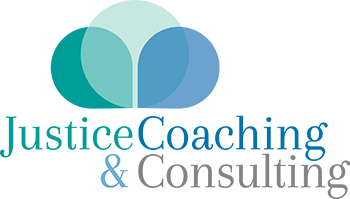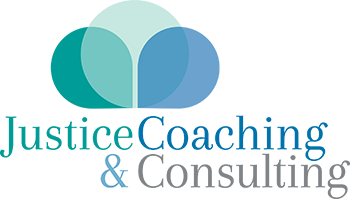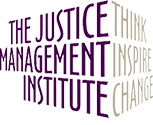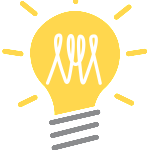Stages of Change Model and Coaching
 Prochaska and DiClemente’s Stages of Change Model is widely understood and used in the addictions and treatment community. I also find that the model has application to coaching in identifying areas where a coaching client may be stuck. I will attempt to demonstrate through coaching examples for each stage of the model.
Prochaska and DiClemente’s Stages of Change Model is widely understood and used in the addictions and treatment community. I also find that the model has application to coaching in identifying areas where a coaching client may be stuck. I will attempt to demonstrate through coaching examples for each stage of the model.
Pre-Contemplation
A coaching client may present in this stage when asked how things are going for them and respond with “It’s great – no problem.” This person is likely locked in the belief that ignorance is bliss and is not ready to explore at a deeper level. In fact, a coach may need to delve into the issue of “coachability” and readiness on the part of his/her client. Questions that can help guide the conversation could include:
1. What evidence supports your notion that everything is great?
2. Who would be able to verify or support your assertion?
3. Why would your boss suggest that coaching might be a valuable leadership experience for you?
4. What indicators would tell you that things might not be functioning at their optimal?
5. If we were to dig below your initial belief, what question should I ask you to help move the conversation from an automatic response to one with deeper context?
Contemplation
My coaching experience has been that many coaching clients, particularly those where coaching is in place to improve managerial and leadership effectiveness, are often articulating statements such as “I know I should have that conversation;” I know I should change jobs;” or “I know this technique is not bringing out the best in my team.” In contemplation, our coaching clients usually state the obvious and fall into patterns of behavior that, although not effective, provide a level of learned habituation and comfort. What they know and what they are willing to do to change patterns and create new realities are prime opportunities for coaches. This area is rich in exploration and may take time and intentional discomfort to move the conversation forward. Questions that can help guide a contemplation stage are:
1. What are the costs to the organization if you fail to hold that difficult conversation?
2. If you continue in a job that depletes you of energy and passion, what will it be like for you six months from today?
3. If your team were functioning with the synergy that you desire, what will they be doing? How will your leadership need to change to bring them to your desired state?
4. What are the risks that keep you stuck?
5. If you were successful in holding that difficult conversation, what will you gain both personally and professionally?
6. What is a challenge in all of this for you?
Preparation
This stage is marked with the desire to change and some limited experience with change. This is the stage where a coach can provide support and encouragement, and help break the change process into smaller more manageable steps. This is the stage where a coach is helping his/her client move from where I am to where I want to be. Questions to help a client with the preparation stage are:
1. A year from now when you look back, what do you want to see?
2. What’s the easiest thing for you to do to get this going?
3. What the fastest thing you can do that will bring you forward movement?
4. Who can support you with this desired change?
5. What type of support do you need?
6. When you make this change, who will benefit? How will you benefit?
Action
Action is about practicing the desired change or behavior. There is a risk here for your coaching client. It is likely they will stumble upon obstacles and or saboteurs. As coach, you can help them navigate new waters, understand the motivations and intentions of others, and work through what might be their limiting beliefs and assumptions. Even those habits and behaviors that don’t serve us well will, over time, create a comfort zone. Any of us who has tried to honor a New Years Eve commitment can attest to the ease at which you can fall back to comfort zones. In the action stage, your coaching client can ebb and flow through excitement and loss or failure. In action, the coach can keep his/her client looking out over the broader horizon. Questions that are helpful as your client moves to action are:
1. What needs to be in place for you to take action?
2. What are some of your obstacles that need to be removed or changed?
3. How will you know if your saboteur shows up?
4. What will keep you motivated?
5. What will signal you that you might be returning to former practices or behaviors?
Maintenance
In this stage, we continue the desire and commitment to achieve long-term change. It is making new neural connections in the brain that build the internal reward and feeling of achievement, thus creating a new reality. In this stage, the coach can help his/her client prepare a plan for sustainability and also to talk about the risks – what could cause your client to revert to old patterns of behavior? In the addictions world, this is a discussion about relapse. In the best of intentions, many factors can contribute to professional relapse, and it is an important discussion for a coach and his/her client to have. There is no blame or shame. It is human nature to falter, even with the best of support. The coach and his/her client can explore the maintenance phase with some of the following questions:
1. If you come up against a saboteur, what will you draw on that will give you the strength to continue with your desired change?
2. Where in your body do you feel anxious or stressed? What do those physical manifestations illuminate for you?
3. In the past when you have stumbled or experienced failure, what has been your response? How would you like that response to be different?
4. When you are feeling unsure or unstable, what brings you strength and grounding?
5. When have you experienced a change or response that gave you great feelings of satisfaction? How can you put them in place to support you in sustaining your long-term goal?
Relapse
This stage is interesting, as we tend to ascribe it to addiction and to fall away from behaviors/activities that don’t serve us well. I would posit that relapse is our humanity and should be regarded as such. Relapse is about identifying and evaluating the triggers that set us off course or return us to the beginning of our coaching journey. Relapse is the phase of change where, if we have a relationship with our coaching client, they will reach back to that “safe place” of coaching to assess what happened, what needs to change or be different, and what new strategies can strengthen the likelihood that relapse won’t reoccur. Questions to support exploration of relapse are:
1. What got in the way of continuing your new behaviors/practices?
2. How has this shown up for you in the past?
3. What need to be different in your world to keep you on track with your desired changes?
4. When did you notice yourself moving away from your commitment?
5. What was your self-talk that gave you permission to move away from your current practice?
6. How were others complicit in this? What will you ask them to do differently?
In conclusion, I chose this analysis so that the human struggle is honored and treated with both the fragility and the strength each of us possesses as we navigate this journey we call life. Coaching has exploded as a profession in part due to the struggles presented through multiple realities, complex problem-solving, and a higher level need for thinking and reasoning skills. Those of us who have traveled the journey of complex work alone know how lonely and isolating it can be. A coach, when well matched, can be both provocative, supportive, challenging and kind. If you don’t have to do it alone, why do it?
Dr. Jan C. Bouch





